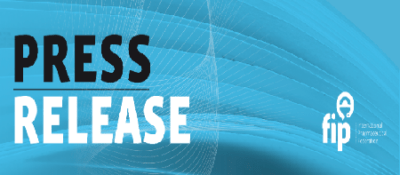A series of statements to support schools of pharmacy and pharmaceutical sciences, and providers of continuing education with self-assessment, monitoring, identification of gaps and strategic planning in order to improve pharmaceutical education is released by the International Pharmaceutical Federation (FIP) today. The statements are presented in a full report of FIP’s Global Conference on Pharmacy and Pharmaceutical Sciences Education held in Nanjing, China, in November 2016.
The “Nanjing Statements” have been published following extensive international consultation and three validation phases, and are grouped into eight clusters covering issues such as professional skills mix, recruitment of students, and resources and academic staff.
With the launch of the conference report today, FIP is calling on pharmacy leaders worldwide to engage in a national dialogue with key stakeholders, including governments, to analyse the current pharmacy and pharmaceutical sciences workforce profile, guided by the conclusions of the global conference, which included 13 Pharmaceutical Workforce Development Goals that lay out directions for action.
“The continued development of pharmaceutical services and sciences in order to meet the health care needs of patients and health care systems around the world relies on a well educated, competent, sufficient and well distributed pharmaceutical workforce. With these newly developed FIP tools and guidance from the Nanjing Conference, leaders in pharmaceutical practice, sciences and education are well placed to support and advocate for the implementation of FIP’s Global Vision for Education and Workforce within their countries and health care systems,” said Professor William Charman, Chairman of FIP Education.
The conference report, “Transforming pharmacy and pharmaceutical sciences education in the context of workforce development”, includes a chapter on implementing the outcomes of the Nanjing conference and a complete list of resources developed by FIP to enable action and which are adaptable to local needs.
FIP is establishing a steering group to develop mechanisms to identify priority areas for action and indicators to monitor progress, with a two- and five-year plan. “We recognise the need for resources to develop a sustainable workforce and, therefore, the importance of economic indicators and quantification of return on investment. FIP looks forward to working with country-specific stakeholders as they move to adopt and implement the empowering conclusions of the conference,” Professor Charman says.
FIP is hosting a series of webinars to guide its members through its resources in order to facilitate the development on their local strategies on workforce through education. The first of these will take place today at 15:00 CEST. The federation is also disseminating the conclusions of the global conference at two side events organised during the 70th World Health Assembly in Geneva, Switzerland, later this month.
ABOUT FIP
The International Pharmaceutical Federation (FIP) is the global federation of national associations of pharmacists and pharmaceutical scientists, and is in official relations with the World Health Organization. Through its 139 member organisations, it represents over three million practitioners and scientists around the world. www.fip.org
About the Global Conference on Pharmacy and Pharmaceutical Sciences Education











pills without a doctor prescription: https://genericwdp.com/ generic drugs without doctor’s prescription
40 mg tadalafil: http://tadalafilonline20.com/ tadalafil generic